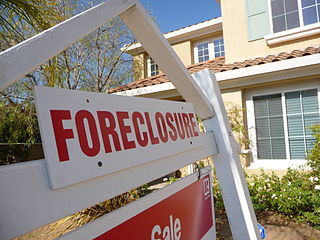– Dan Freund, Eau Claire bankruptcy lawyer
More bankruptcy questions? Check our our FAQ page.

This page contains general information. Contact a WBG attorney for specific advice.
This article explains Wisconsin foreclosure procedure. For what to do if you face foreclosure see Wisconsin Home Mortgage Foreclosure: What Can You Do?
You’ve fallen behind on home payments. Your lender threatens foreclosure. What does that mean?
Summons and Complaint
A Wisconsin foreclosure begins with a “summons” and “complaint.” The summons tells you the deadline for responding to the complaint.
This is a crucial time – you could lose valuable rights if you don’t respond promptly and properly. Work with a lawyer to determine whether to contest the complaint or, for mortgages signed on or after April 27, 2016, whether to ask the court for extra time to sell your home. Even if you don’t fight the foreclosure, you should still file an “appearance” to assure you will receive notices as the case progresses.
The initial period is also a good time to look at your entire financial situation. Should you try to save your home? Can you save your home? Do you have other issues that you can solve at the same time? Your attorney should conduct a complete debt relief consultation to determine your best course of action.
During this preliminary period you have the right to stop the foreclosure and reinstate your mortgage by paying the amount you are past due plus the mortgage company’s reasonable attorney fees. You’ll lose this right once the case goes to judgment.
You also have the right to file a Chapter 13 bankruptcy to suspend the foreclosure and catch up on past due payments over a three to five year period. (And, in some cases, you can ask your lender to work with you in a Chapter 13 to modify your mortgage.) You have this right all the way until the confirmation hearing (discussed below).
Judgment
If you don’t fight the foreclosure – or if you fight and lose – the judge will give your mortgage company a judgment. The judgment starts the clock running on a “redemption” period.
Redemption Period
The redemption period can run from three to twelve months. The length depends on three factors. First, whether you still live in the home. Second, whether the mortgage company wants to try to collect from you after the foreclosure. And third, for mortgages signed on or after April 27, 2016, whether you show the judge at the beginning of the case that you intend to sell your home and have it listed for sale.
Between the judgment date and the confirmation hearing date you can: (a) sell your home, (b) refinance your loan elsewhere or (c) simply continue to live in the home rent-free.
If you can raise the funds to catch up on your loan, you can suspend the foreclosure past the redemption period. But if you fall behind in the future the suspended foreclosure will resume.
Sheriff sale
After the redemption period ends your mortgage company can set a sheriff sale. The law does not require that you receive notice of the sale. So near the end of your redemption period you should watch for the sale notice in the classified ads in your local newspaper.
Sheriff sales take place at the courthouse. At the appointed time a deputy announces the sale and opens the bidding. Often the mortgage company is the only bidder.
You can continue to live in your home after the sheriff sale. However, you should be ready to vacate at or before the time of the confirmation hearing (discussed next). And even after the sale you can still sell, refinance, or file a Chapter 13 bankruptcy to catch up on payments.
After the sheriff sale – often within a month or less – the judge will hold a hearing to confirm the sale. You will not receive notice of the confirmation hearing unless you have either contested the foreclosure or filed an appearance.
Once the judge confirms the sale you no longer own your home. You cannot sell it, refinance the loan, or save the home with a bankruptcy.
Eviction
If you do not voluntarily vacate the home within days of the confirmation hearing then whoever purchased the home can have you evicted.
Deficiency
In almost all Wisconsin home foreclosures the mortgage company gives up the right to collect any money from the borrower. In those cases the confirmation hearing ends the foreclosure.
In the remaining cases the mortgage company will have the right to try to collect a judgment for the difference between the loan amount the sheriff sale amount.
More bankruptcy questions? Check our our FAQ page.
This page contains general information. Contact a WBG attorney for specific advice.
Wisconsin Bankruptcy Guide is provided by law firms designated as Debt Relief Agencies by the federal government because we help people file for relief under the Bankruptcy Code. We also provide other types of debt relief options.
Image credit: flickr/Jeff Turner
